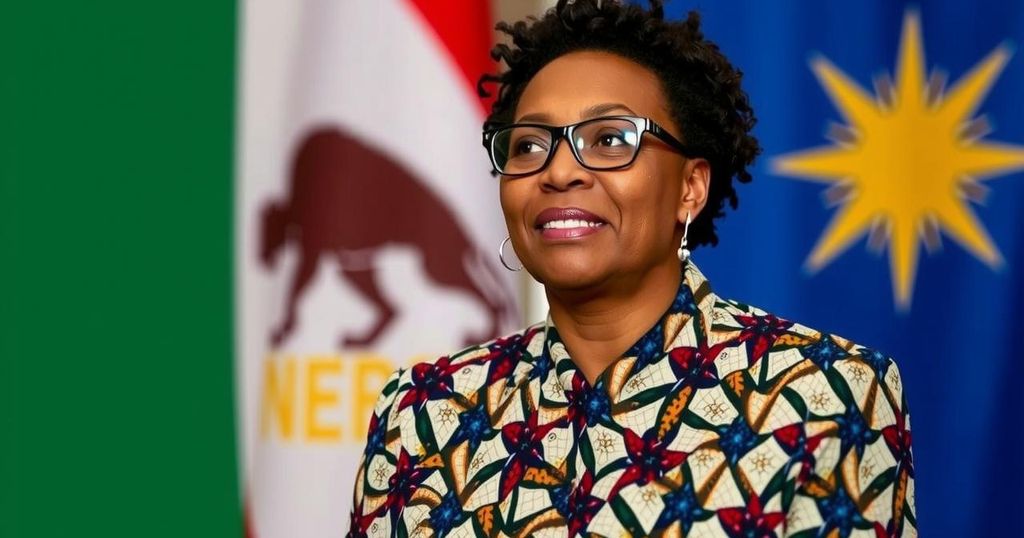Namibia Set to Elect First Female President, Amidst Electoral Disputes

Namibia is on track to possibly elect its first female president, Netumbo Nandi-Ndaitwah, with over 58% of the votes counted in the recent elections. Her competitor, Panduleni Itula, disputes the results, alleging electoral malpractice. Nandi-Ndaitwah’s victory would mark a significant achievement in gender representation in African leadership, joining Tanzania’s Samia Suluhu Hassan as one of the continent’s few female heads of state.
Namibia is poised to elect its first female president, Netumbo Nandi-Ndaitwah, from the ruling South West Africa People’s Organisation (Swapo). She has garnered over 58% of the votes, while her nearest competitor, Panduleni Itula of the Independent Patriots for Change (IPC), has approximately 25%. However, Itula has disputed the results, claiming electoral irregularities and alleging that his party will not recognize the election outcome. Notably, Swapo has dominated Namibian politics since the country’s independence in 1990, which was marked by their leadership in the anti-apartheid struggle against South Africa. Despite concerns regarding Swapo’s declining popularity, Nandi-Ndaitwah, with her extensive political experience as vice-president, could pave the way for significant advancements for women in leadership roles across Africa, joining only one other female president on the continent, Tanzania’s Samia Suluhu Hassan. To avoid a runoff, a candidate must secure more than 50% of the vote. Itula, a skilled dentist, is recognized for his charisma, which has previously diminished Swapo’s stronghold on power. Following recent voting challenges, the IPC has announced intentions to seek judicial redress and has encouraged citizens affected by alleged electoral mismanagement to report their grievances to law enforcement authorities.
The potential election of Netumbo Nandi-Ndaitwah marks a significant milestone in Namibia’s political history, as she stands to become the first female president of the nation. Her party, Swapo, has exercised political dominance since independence from South Africa. The context of this election also reflects broader regional trends where liberation organizations are witnessing electoral setbacks, raising questions about their future viability. The allegations of electoral malpractice further complicate the political landscape, highlighting concerns around the credibility of electoral processes in southern Africa.
In conclusion, the election of Netumbo Nandi-Ndaitwah signifies a historic moment for Namibia as it moves toward potentially having its first female president amidst disputes over electoral integrity. With her extensive experience in government, she represents a continuation of Swapo’s legacy while also breaking new ground for women in leadership. However, the challenges posed by allegations of electoral misconduct remind us of the complexities facing democracies in the region, as the IPC seeks to address these grievances through legal avenues.
Original Source: www.bbc.com







